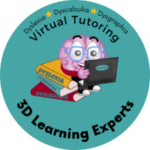Early reading skills are critical for academic and lifelong success, and more states are starting to recognize the importance of phonological awareness testing in young children. Phonological awareness—the ability to recognize and manipulate sounds within words—is a foundational skill for reading and spelling. Without it, children often struggle with Dyslexia and other reading challenges.
As assessments become more common, many parents are wondering: Is testing enough to truly help struggling readers, or do children need something more?
What Is Phonological Awareness?
Phonological awareness is the broad skill of identifying and working with sounds in spoken language. It includes recognizing words that rhyme, counting syllables, and manipulating individual sounds (phonemes) in words. This skill is essential for learning to decode words and become a fluent reader.
Which States Are Implementing Phonological Awareness Testing?
Many states are beginning to screen students for phonological awareness as early as kindergarten and first grade. Virginia, Wisconsin, Iowa, and Delaware have implemented assessments to identify students at risk for reading difficulties (IMSE Journal). Mississippi has been a pioneer in this area. Since the enactment of the Literacy-Based Promotion Act in 2013, Mississippi has mandated Dyslexia screeners for all students during the spring of their kindergarten year and the fall of their first-grade year. These screenings assess phonological and phonemic awareness, among other skills, enabling early intervention for students exhibiting reading challenges (Cornell).
What Do Phonological Awareness Tests Look Like?
-
Rhyming words – Identifying words that rhyme.
-
Syllable counting – Determining how many syllables are in a word.
-
Phoneme segmentation – Breaking words into individual sounds.
-
Blending sounds – Putting separate sounds together to form words.
What Happens After Testing?
-
Small Group Instruction – Students receive targeted lessons in phonological awareness and phonics with a group of peers.
-
Pull-Out Services – Students work with volunteers and reading specialists outside the classroom.
-
Classroom Accommodations – Teachers may implement multisensory learning techniques, extended time on assignments, or assistive technology.
Why Standardized Phonological Awareness Testing Isn’t Enough
How 3D Learning Experts Provide the Support Your Child Needs
-
Customized, one-on-one tutoring tailored to your child’s specific needs.
-
Multisensory, research-based techniques proven to help students with Dyslexia, Dysgraphia, and Dyscalculia.
-
Specialized, highly trained, and certified instructors who have extensive experience working with students of all ages (from 1st grade to adulthood) with learning differences.
-
More individualized attention than schools can provide, ensuring your child gets the support they need to succeed.
-
Flexible scheduling that ensures your child receives consistent, uninterrupted instruction.
Take Action Today!
If your child is struggling with reading, spelling, writing, or math, waiting for school interventions may not be enough. Individualized support is the key to lasting success.

